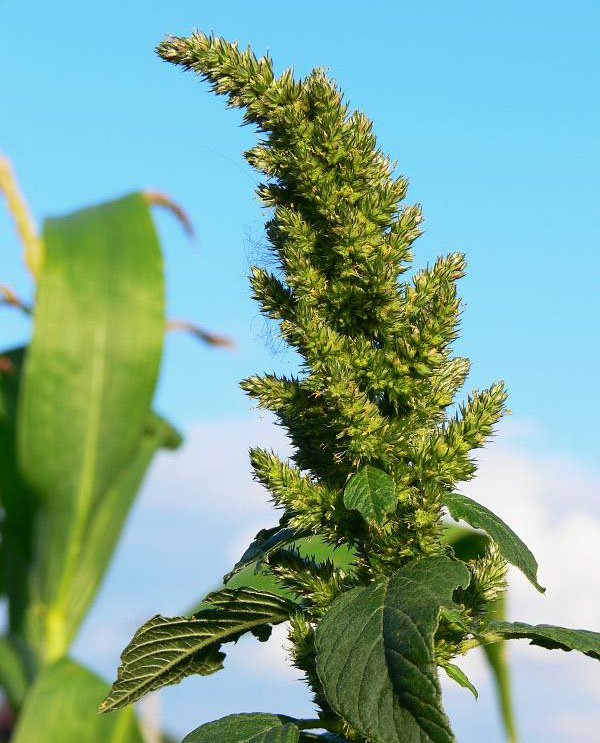
Agricultural News
Possible Resistant Pigweed Found on High Plains
Thu, 08 Sep 2011 12:48:14 CDT
 Many producers are aware of the weed resistance problems that have developed across the Mid-South, but now those problems could be in our own backyard.
Many producers are aware of the weed resistance problems that have developed across the Mid-South, but now those problems could be in our own backyard.
Dr. Wayne Keeling with Texas AgriLife Research said that their staff first was made aware of potential problems around the first of August, when experts reported a couple of fields in Terry County where Palmer amaranth, more commonly known as pigweed or carelessweed, had survived multiple glyphosate applications, possibly exhibiting resistance.
Dr. Peter Dotray, also with Texas AgriLife Research and the Department of Plant and Soil Science at Texas Tech, said he has received phone calls reporting possible resistance in the past, but other issues such as herbicide rate, carrier volume, spray coverage, weed size, and overall environmental conditions were noted as the likely cause.
Texas AgriLife Research staff collected soil samples from the areas where actively growing weeds were present and cultivated pigweed in their greenhouse. They then made glyphosate applications over a wide rate range. The weeds survived glyphosate rates equal or higher than normal use rates.
"Preliminary greenhouse results indicated that glyphosate-resistant weeds were present in these fields," Keeling said, adding that additional soil and weed seed samples have been collected for further study.
Dotray and Keeling noted that this is disturbing news for area producers, and reiterates the need to implement aggressive weed resistance management strategies, including the use of pre-plant incorporated pre-emergence and post-emergence herbicides with residual weed activity.
Keeling said producers should be proactive and closely monitor fields, destroying suspicious weeds as soon as possible.
"Get rid of what you can," Keeling said. "That will limit the production of additional resistant seed and help prevent the problem from becoming more widespread next year."
Producers who repeatedly have sprayed fields with glyphosate this season and have surviving weeds should contact Keeling or Dotray at the Texas AgriLife Research Center, (806) 746-6101. Plains Cotton Growers also will keep you updated with additional information.
WebReadyTM Powered by WireReady® NSI
Top Agricultural News
More Headlines...




















